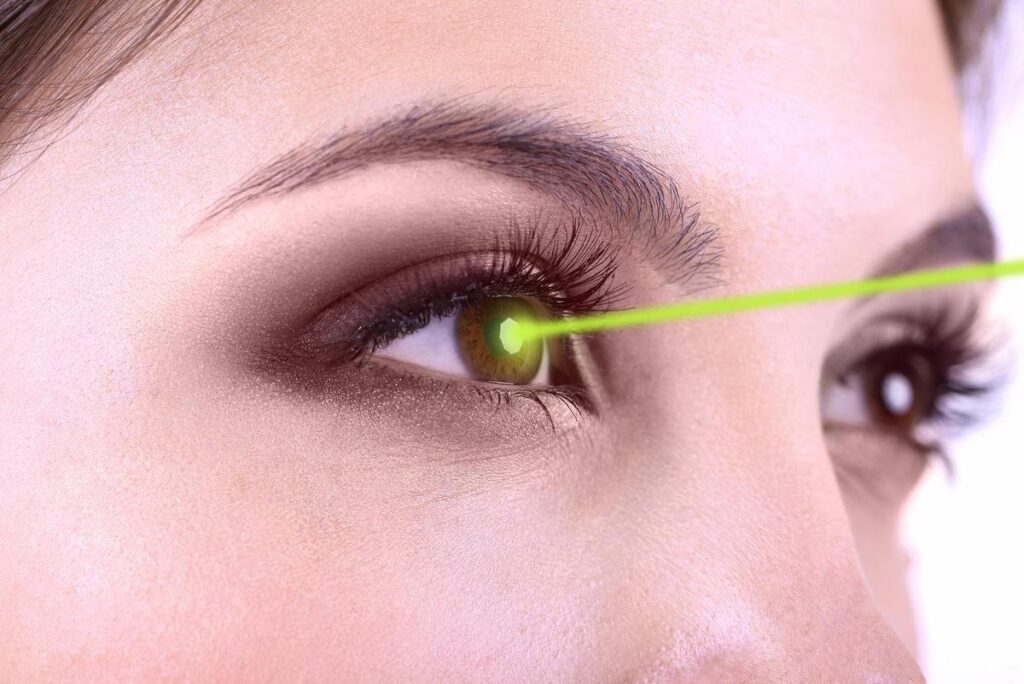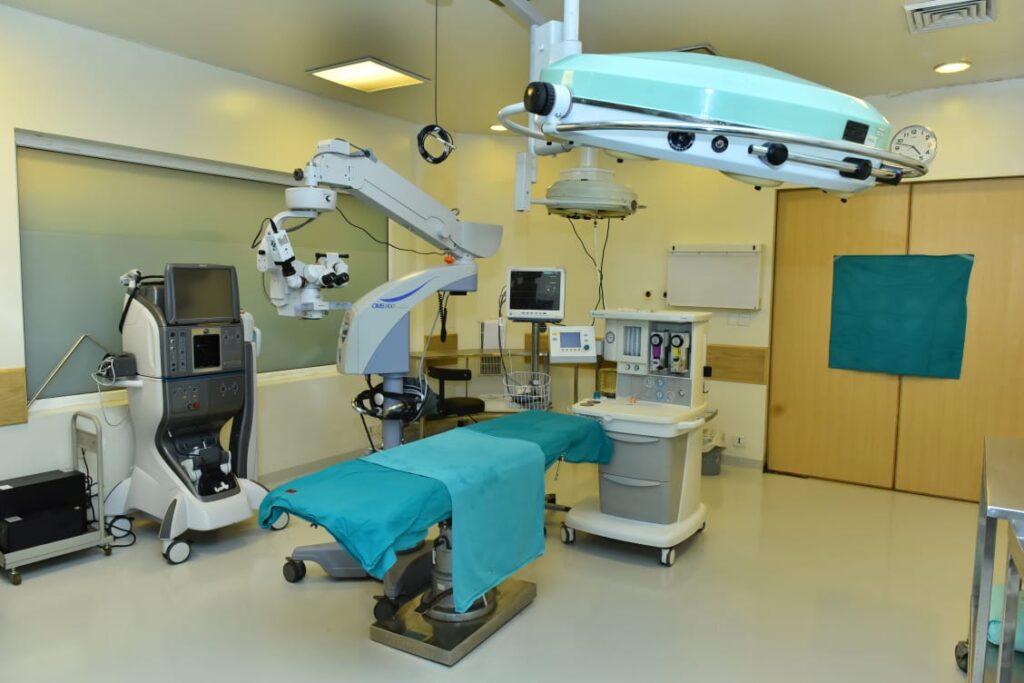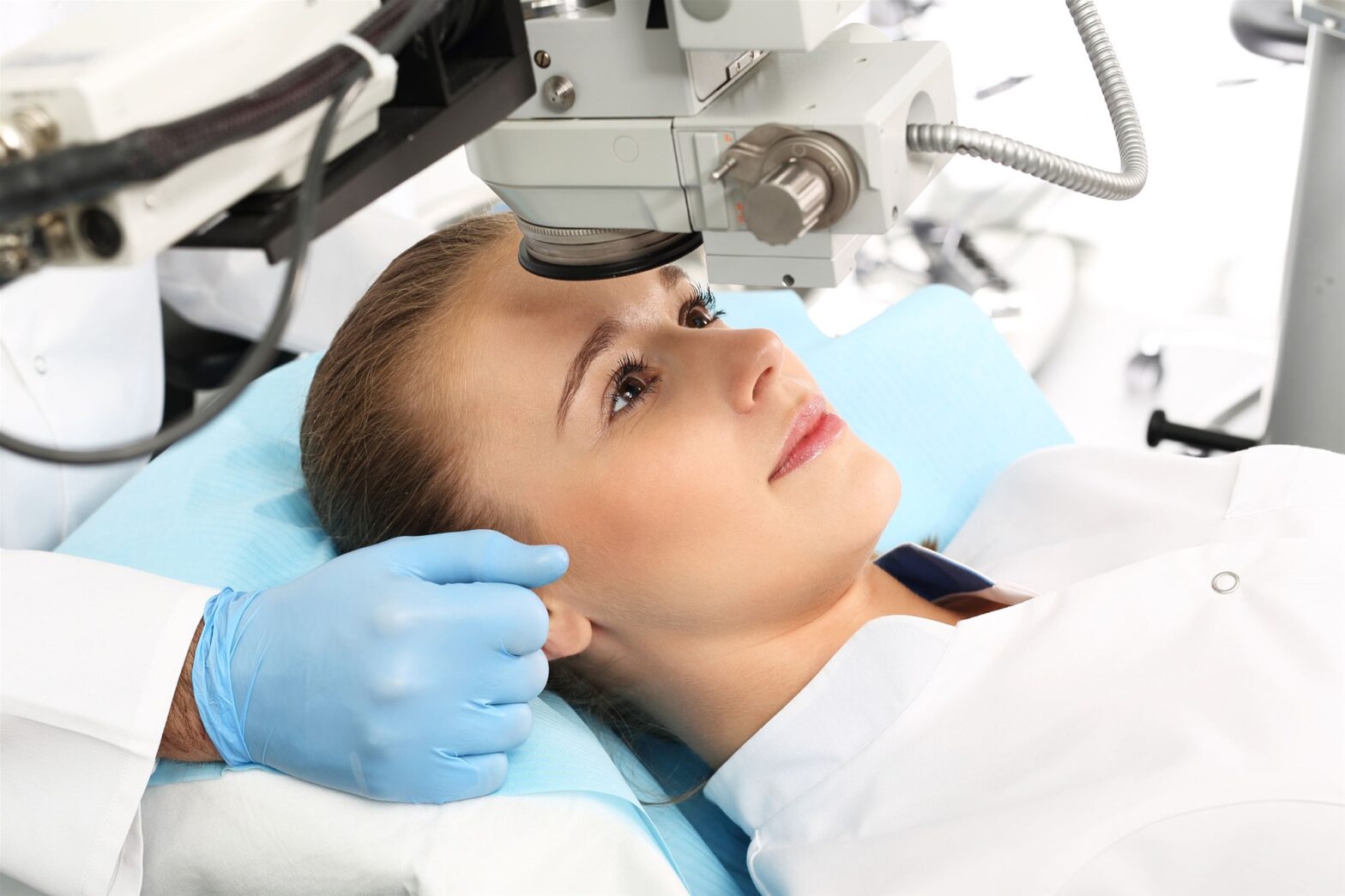Laser eye surgery is known for its immediate and lasting results. No doubt, countless people have been able to experience the sharpest vision of life after they return from a laser surgery centre. Without exaggeration, millions of tens of millions worldwide have undergone the procedure and are presently enjoying a perfectly restored vision without complaints.
A one-on-one questioning session with your eye caregiver is essential before enrolling for laser eye surgery sydney. First, it will help you to determine whether you are qualified to have the surgery or not. It will also help you know how to prepare and what to expect during and after the procedure.
Laser eye surgery can fix a wide range of vision impediments –mild or severe – and increase people’s performance and productivity at home or the workplace. In contrast with eyeglasses and contact lenses, the surgery requires recurrent repair, replacement or any maintenance routine. It’s a once-and-for-all solution.
Laser eye surgery might not be the most suitable option for you. And, it can. It all depends on the prescription of your ophthalmologist. Truthfully, certain conditions surrounding the procedure require patients to ask questions before deciding to go for surgery.

Mind you, the questions session is a one-way flow. As much as your doctor will ask a few honest questions, you must also ask some essential questions to guide you. In that light, we’ve helped you compile the six important questions you must ask your doctor before agreeing to have laser eye surgery. As sweet icing on the cake, we have also provided appropriate answers for each question from the professional point of view.
6 Essential Questions to Ask Before Enrolling In Laser Eye Surgery
1. Am I a good candidate for laser eye surgery?
On a general note, all adults are eligible to have laser eye surgery. Once you are above 18 years, you become a good candidate. However, not all young adults can enroll for surgery. The reason is that it’s not all about age—other essential criteria to fulfil before you qualify for the procedure.
First, you must meet up with the approved parameters, which state that every patient must have:
- +6.00 diopters of farsightedness, also called hyperopia
- 6.00 diopters of astigmatism, a common imperfection in the eye curvature
- -12.00 diopters of nearsightedness, also called myopia
Then, you must also:
- Not have an autoimmune disease. The infection can cause healing to slow after the surgery.
- Not be pregnant or breastfeeding. The elevated pregnancy hormone level can affect the shape of the eyes during pregnancy. For that reason, it’s always advisable for pregnant women to wait for years after childbirth until they stop breastfeeding before enrolling for laser eye surgery.
- Be healthy. Your eyes and entire body must be in a perfectly healthy state.
- Not have eye infections. Going for laser eye surgery with an existing eye infection may worsen the vision afterwards instead of correcting it.
2. is the surgery painful?
Laser eye surgery involves making an incision and reshaping your cornea with a laser; the process is not painful. Surprisingly, most people become scared at the mention of the incision. Nothing is distressing in the procedure.
However, this question will let you know about the surgeon’s professionalism. If the ophthalmologist tells you the surgery will cost you pain, it’s a red flag. Although there’s a tendency for you to feel some itchy sensation and discomfort during the incision, it’s very much bearable and doesn’t last for more than 60 seconds. Make sure you enrol with an expert to avoid pain and complications.

3. What happens during the procedure?
You need to know what happens during the surgery. That will help prepare your mind before the day of the surgery.
The physician will reshape your cornea with a laser and leave it to heal. But, there’s a process to it.
First, your surgeon will test your eyes to ensure it is ready for operation. Afterwards, he would administer numbing eye drops into your eyes and ask you to blink to allow the fluid to penetrate the eyes. The numbing eye drops keep your eyes wide open and without blinking throughout the incision period.
Furthermore, your surgeon will create a thin flap in your corneas with a femtosecond laser. He will fold the flap and reshape your cornea to allow it to focus adequate light on your retina
4. How long will it take to see results?
It’s immediately! You will see a brighter, sharper vision in the first 24 hours after the surgery. After you get home and rest a bit, you will wake up to start seeing those objects from far and distant that were hard to see. You will also be able to perform your daily routine like exercise, household chores and more.
5. What’s the recovery process?
This question is among the most important. Most people don’t bother to know their roles after the surgery. Hence, they complain of late recovery. Meanwhile, laser eye surgery will not be capable of providing instant results if the patient doesn’t adhere strictly to the aftercare rules and regulations. Make sure your doctor spells out everything you need to start doing after the surgery to aid in quick recovery.
6. Are there any side effects?
Laser eye surgery may bring some minor vision complications immediately after the procedure. However, they will vanish after a few days automatically without administering medications. When you are experiencing little struggles, make sure you are very close to your health care provider to get a guide on managing the situation for quick recovery.
Finally
When asking your doctor questions about laser eye surgery, it is essential to be detailed. Though the above questions should be your priority when sitting with your ophthalmologist, you can add more as you may need direction and clarity. As a professional in the field, we will advise you to go to the interview with your writing materials so as not to miss an answer.
